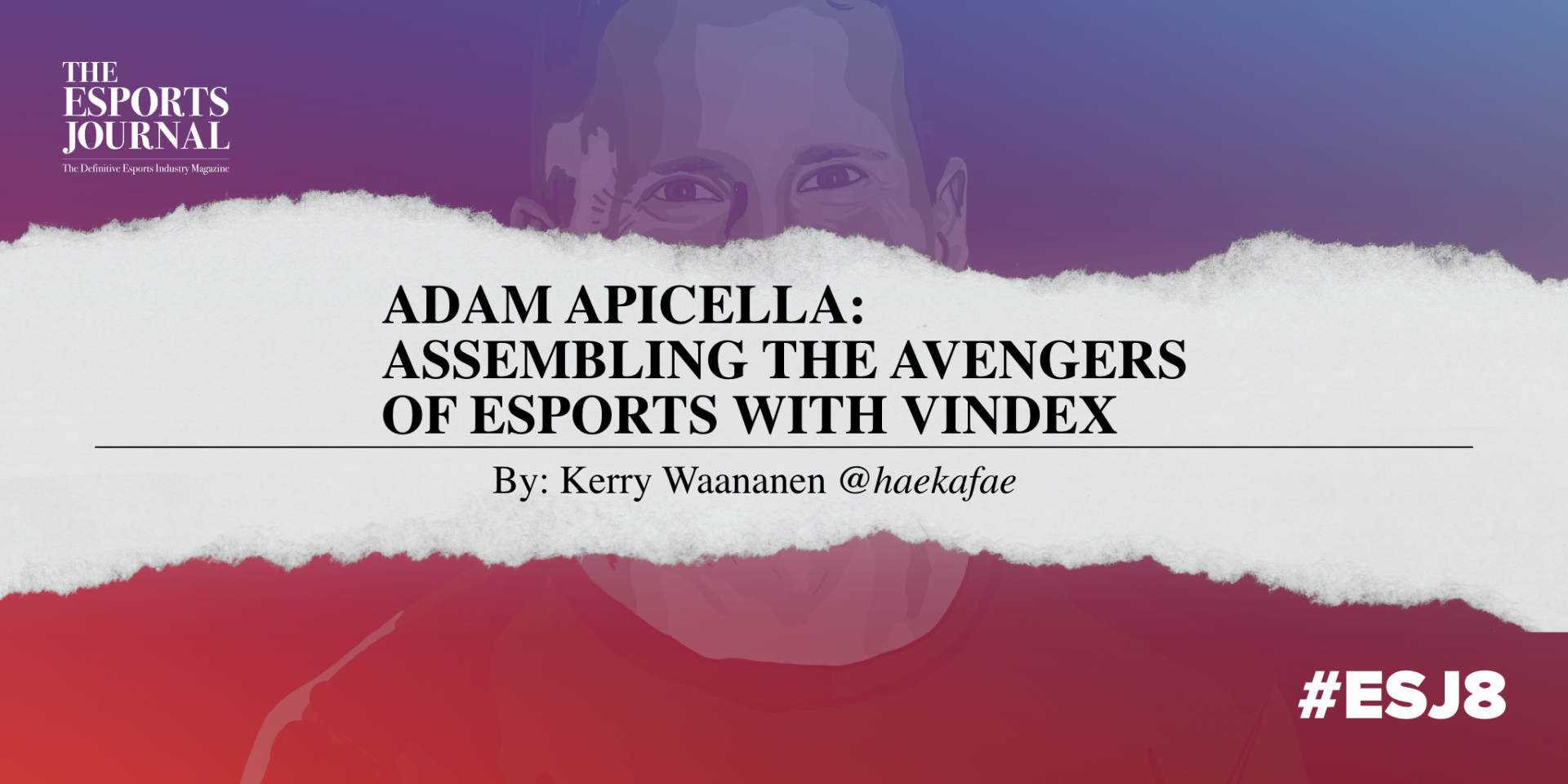
Adam Apicella wants esports to bulk up. The Ohio Valley native isn’t so much building the gym for the esports industry as he is inventing exercises for the metaphorical Vindex all-in-one fitness machine. Use Vindex, get results.
RELATED: ESE Entertainment: Esports? You want it, we got it
Between Vindex’s event-solution provision, Esports Engine, and physical-location gaming hubs, Belong Gaming Arenas, Apicella and Vindex guarantee top-tier experiences for all involved — whether it’s a professional, corporate-sponsored esports tournament with thousands of fans or a free-entry, grassroots round-robin with a gift-card prize.
The Esports Journal spoke with Apicella, Chief Experience Officer (CXO) of Vindex and Founder and President of Esports Engine about how the group is solving the industry’s issues, what he’s learned after almost 20 years in the industry, and Vindex’s plans for the future.
MLG: A trip down memory lane
Apicella found success at Major League Gaming (MLG) as employee number one. Made the first hire by Mike Sepso and Sundance DiGiovanni, he helped cement MLG, the first North American esports entertainment network, as an icon in the 2000s. MLG had stumbled upon the secret sauce that western publishers had created by accident — a ‘longevity engine’.
“I was at MLG for 13 years,” Apicella told The Esports Journal. ”We had a lot of success. The journey of MLG coincided with esports discovering itself and publishers figuring out what the hell it was. Eight to ten years into it, publishers started saying, ‘Oh this is really big. People aren’t just playing our game and then putting it to the side anymore; they are still playing it — this is a longevity engine, we’re selling microtransactions and digital products around this’.”
Publishers began hiring en masse for internal esports departments. MLG was purchased by Activision Blizzard (AB) in 2015 where Apicella served as Vice President of League and Event Operations for four years. A requirement of his role was to ensure “epic execution” of Activision’s competitive gaming events and marketing so that when they did decide to go all-in on esports, “their voice was as loud as possible,” according to Apicella.
During the years he spent at the publisher, Apicella felt the pain from gaps in esports’ infrastructural armour, especially when it came to big-budget productions. There wasn’t anything resembling an all-in-one solution that could help fuel his ‘epic execution’ and felt that the level the industry was reaching for wasn’t being properly served.
Esports thrives in epic executions. Apicella felt that a holistic solution, one that could satisfy what a publisher like AB would expect, didn’t exist. Having lived through these pain-points professionally and having delivered these moments with MLG, he knew from experience what needed to be done — but couldn’t find anyone to do it. Apicella went on to build the solution he knew that the industry needed, named it Esports Engine, and took it out of the garage in late 2019, two months after leaving AB.
An Esports Engine
Esports Engine, simply put, is a grey-label partnership that offers publishers transparency and trust in their esports operations so they can focus on making great games and “reaping sentiment with their community,” According to Apicella.
“We like to say that we’re more fingers on the hand of a publisher,” Apicella added. “For us, it’s a partnership. We’re not just trying to put as much revenue in our pocket. If we gouge someone and make a ton of money on an event that is mediocre, that doesn’t help us either.
[primis_video widget=”5183″]RELATED: Three (types of) companies that might unshackle monetisation in esports
“We want games to have as long lifespans as possible because that way we can keep working with that publisher, that community, and we can continue our business, so everyone wins. That tide lifts all boats.” Vindex wants to be that hydro-powered pump, flooding the industry with infrastructure and using it to power its own execution. So long as there are boats, the pump has a purpose.”
To read the rest of this article, go to The Esports Journal Edition 8, page 18
[maxbutton id=”18″ ]
